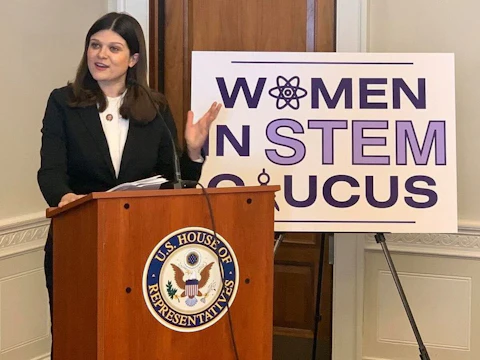It may take as long as a week to find out who the next president will be after polls close Nov. 3, says Michigan’s Secretary of State.
LANSING, MI — When polls close on election day, reporters start tracking counting of ballots, reporting in real time the results of the election as they become available. By the early morning hours of the following day, America usually knows who won what state, and who will be living in the White House for the next four years.
The familiar notion of finding out who the next president will be late on election night will likely be another tradition disrupted by the novel coronavirus pandemic, warns Secretary of State Jocelyn Benson.
RELATED: Voting in 2020: Your Guide to Creating an Election Plan in Michigan
“We should be prepared for this to be closer to an election week as opposed to an election day,” Benson said on Meet the Press Sunday. “The bottom line is we are not going to have the full results and a counting of all of our ballots on election night. We already know that. We’ve asked the legislature to make changes to the laws to give us more ability to be prepared and count those ballots more efficiently.”
Michigan’s legislature hasn’t granted Benson’s requests, including a guarantee that all ballots mailed by Election Day be counted. As it stands, a ballot must be received by a local clerk by the time polls close. Even without that provision, though, Benson cautioned that it may take as long as a week to know who the next president will be.
An anticipated large number of absentee votes combined with the strains posed by ensuring worker safety during the pandemic and much higher overall turnout are expected to slow the counting process considerably. Even with the new tabulation machines the state has acquired, the kind of rapid results Americans are used to will likely not come this November.
SEE ALSO: These 4 Lawsuits Could Change Everything for Michigan’s November Election
Ultimately, Benson said, speed isn’t the top priority on election night — accuracy is.
“If it takes a few extra days to ensure we have a full and accurate counting as a result of every race, that’s what it’s going to take,” Benson said. “We’re going to be transparent throughout that whole process to make sure every citizen knows exactly where we are in the counting process and how many more ballots we have to get through.”
That delay gives way to a concern, Benson explained. As The ‘Gander reported, she has warned about the role misinformation and disinformation have played in the election so far, including misinformation spread by President Donald Trump. And Benson fears hasty reporting of a winner before the votes are counted may be another link in the chain of election misinformation.
Her worry is that news outlets will report a winner before one is actually determined, in a repeat of the infamous 2000 election between George W. Bush and Al Gore.
“To me, that’s just going to be another example of the type of misinformation and disinformation that we’re seeing multiple ways from multiple platforms and voices in this election cycle,” Benson said. “So, we are going to counter that misinformation with truth and accuracy.”
READ MORE: More Than 10,000 Ballots Weren’t Counted in Michigan’s August Primary. Here’s Why.
Benson is optimistic that the results of the election will be determined clearly and fairly, and that Michiganders will make their voices heard. She pointed to smashed records in Michigan’s August and May elections as evidence that even in a pandemic, Michiganders are engaged in democracy. She said Michigan was on track to set another record for turnout in November.
But there are challenges as well. Over 10,000 ballots were rejected in August, many of which were rejected for arriving after polls closed. That was a result, in large part, of the postal delays stemming from Louis DeJoy’s policy changes at the United States Postal Service. Benson is working to overcome those challenges.
“The changes in the postal service, if nothing else, have created confusion and chaos where none existed prior,” Benson said. “So, the voter education and the confidence boosting we now have to do and will do to ensure voters feel confident that their vote is counted is a key part of our work moving forward.”





